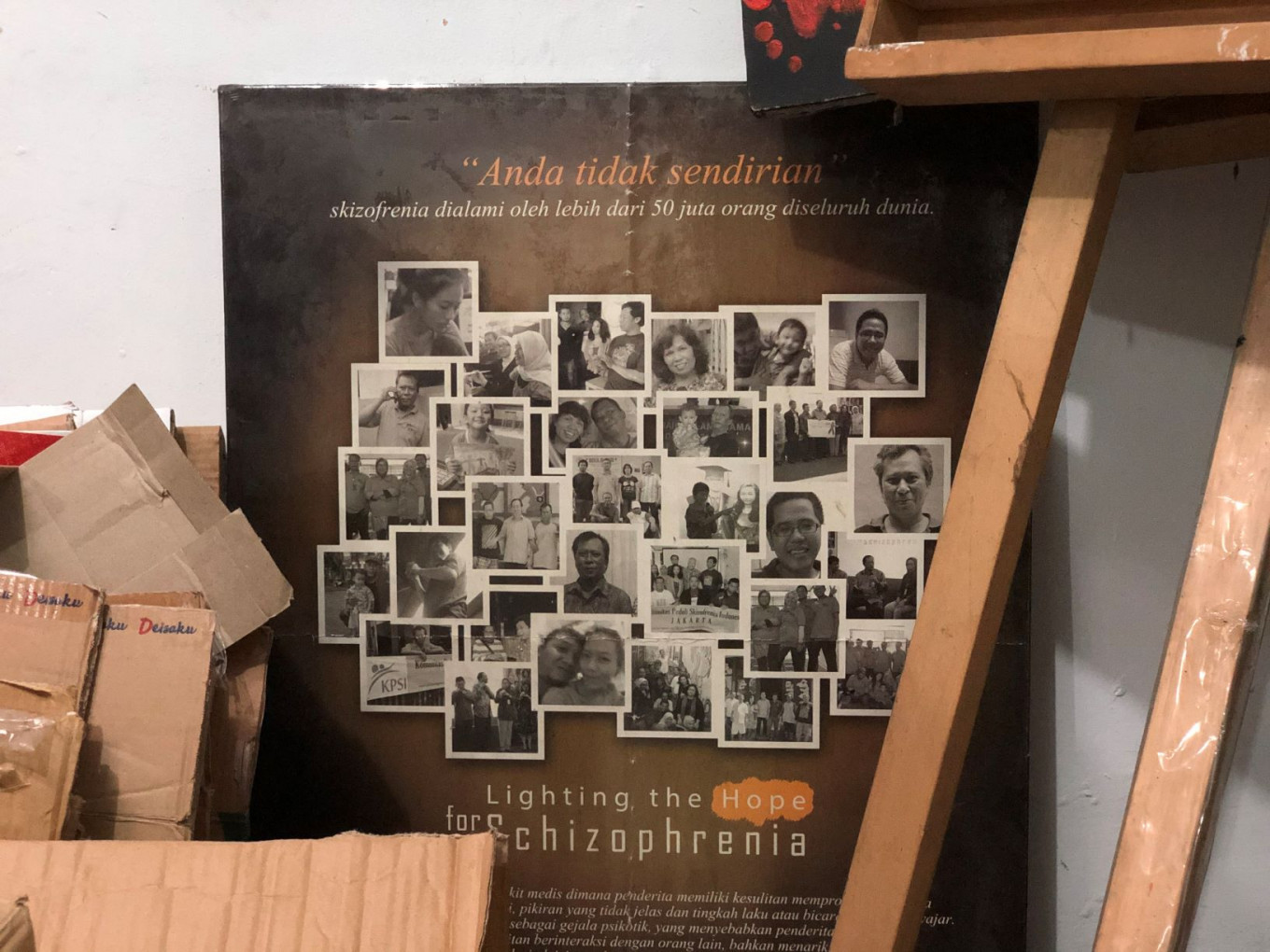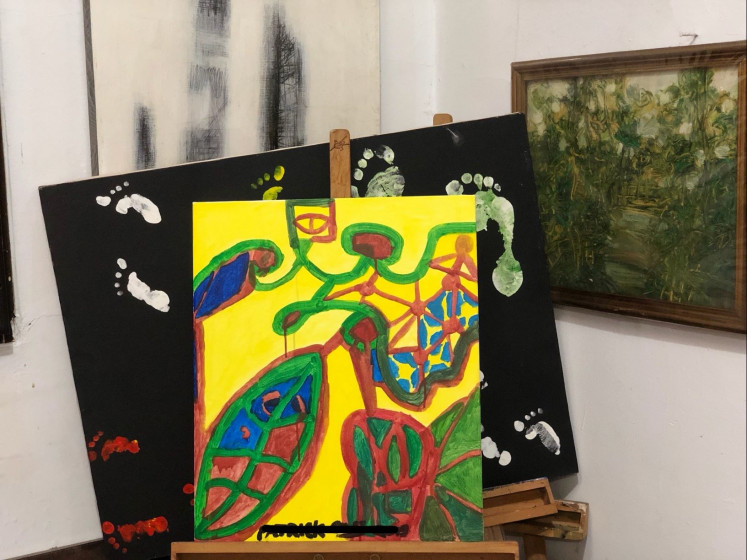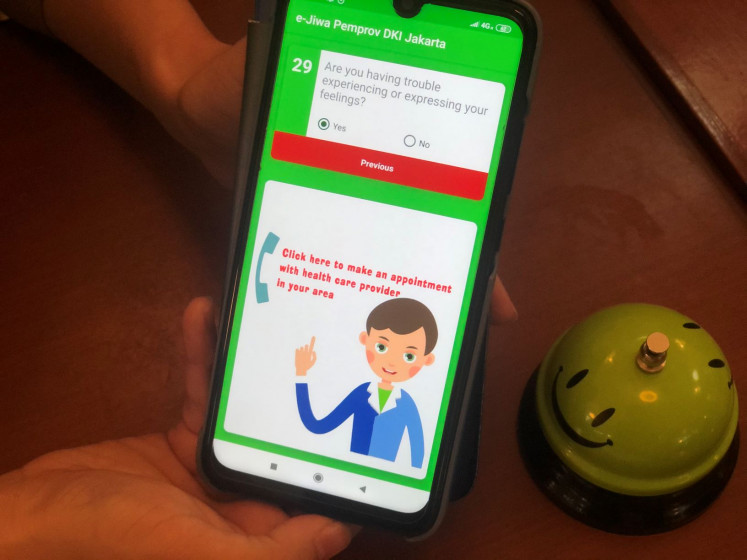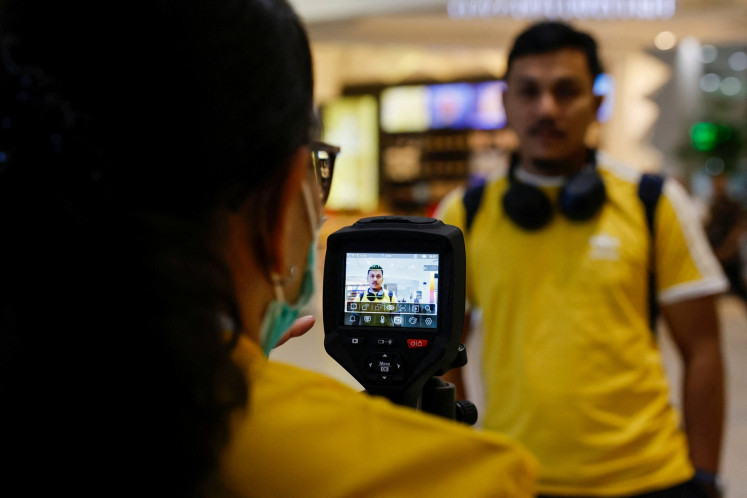Popular Reads
Top Results
Can't find what you're looking for?
View all search resultsPopular Reads
Top Results
Can't find what you're looking for?
View all search resultsUntold stories: Seeking the truth about mental illness
Many problems arise not from mental illness itself, but the lack of accessible information to help families understand their rights and the nature of a disorder.
Change text size
Gift Premium Articles
to Anyone
W
hen Bagus Utomo’s older brother was diagnosed with schizophrenia 13 years ago, his screaming and crying through the night, outbursts of violence and other unpredictable behaviors were heartbreaking for his family.
“We didn’t know what that was, and we didn’t know what to do. It’s not easy to live with people who have a mental disorder,” he said.
“It took 10 years before I finally found something on the internet that explained this [schizophrenia] is an illness that required [medication].”
There are countless stories like Bagus’ across Indonesia that show that many problems arise not from mental illness itself, but the lack of accessible information that helps families understand their rights and the nature of a disorder.
A 2018 Indonesian Psychiatric Association (PDSKJI) survey showed around 9 million Indonesians suffer from mental illnesses, with 400,000 having schizophrenia. A 2016 Human Rights Watch study indicated that Indonesia has a shortage of licensed psychiatrists, an average of only one for every 300,000 to 400,000 people.
Due to insufficient healthcare services, Bagus and his family searched for useful information in the media, but what they found only confused them.
“They [the media] don’t understand how mental illness results in human suffering; they don’t know how families are struggling,” Bagus said. “Without proper media coverage, the public still believes that people with mental disorders are simply evil, not religious enough and need to pray more.”
The economic divide in society deepens the stigma around mental health.
Irine Wardhanie, representative of Sindikasi, a trade union for creative industry workers, thinks the media industry tends to mislead lower-income communities.
“The media treats the working class differently. We don't ‘feed’ them with proper mental health information because they are more attracted to news with exaggerated, dramatic headlines,” she said.
Based on his own experiences, Bagus decided to help others by setting up the Community of Indonesian Care for Schizophrenia (KPSI), a support group for patients and families, in 2011.
“After I saw my brother getting better, I realized it is important for everyone to have accessible information, so I started to focus on educating people with mental illnesses and their families.”
Garnering some 48,000 Facebook followers, the KPSI aims to educate and empower both people with schizophrenia and their family members, while also promoting the responsible spread of information about the disorder.
Within the KPSI, Bagus launched a journalism program to establish an inclusive understanding of mental health issues among journalists by setting up seminars with qualified psychologists, people with mental disorder themselves and their families.
“Journalists can be the allies that will help breakdown the stigma, and sometimes, education is better than anything,” he said.
While the media can play a leading role in building awareness about mental health disorders, the fear of losing jobs and social stigma often pushes journalists into silence about their own experiences that could be meaningfully shared with both colleagues and audiences.
Media coverage of mental illness has improved in recent years, but journalist tend to hide the fact that they themselves regularly suffer the same problems, Irine said.
“People think journalists are superhuman–no fear no trauma. In fact, we are as weak as others,” she added.
“We see bad situations — human body parts, unborn babies. Veteran journalists tell the young ones who are not experienced that they have to be strong, because journalist don’t know 'trauma' words [how to talk about trauma].”
HOPE LIGHTS UP
To embrace mental health issues on a broader scale, the Cilandak community health center (Puskesmas) in South Jakarta created a mobile application called E Jiwa to provide accurate information about mental illnesses.
Closer look: E Jiwa App provides professional advice about mental health. (JP/Yi Peng)The project was initiated by the Puskesmas’ doctor, Luigi, who explained that the app can be accessed in both Indonesian and English and is available for Adroid phones.
The app provides 29 short questions that are certified by the World Health Organization (WHO) to assist people to understand the mental struggles they are going through and offer suggestions.
“After the test, the user is given one of three colors that categorizes the state of their mental health. Green refers to healthy, yellow refers to moderate alarming and red means they need to consult a psychologist as soon as possible,” she said.
The app already has more than 18,000 users in Jakarta, of which 13,000 are in Cilandak, but Luigi is aiming for a bigger goal.
“E Jiwa not only encourages people to gain more awareness but also helps us [health workers] decide what to do next,” she said. “The database from this app would be beneficial for the research or the creation of a mental healthcare system in the future.”
Margo Wiyono, the Social Affairs Ministry’s director of rehabilitation for people with disabilities, points to the importance of local mental health programs having active media strategies.
“We are promoting more informative content through social media, videos and press releases,” he said. “We want to make sure the information is accessible for all Indonesia and fight with the social stigma together.” (ste)













